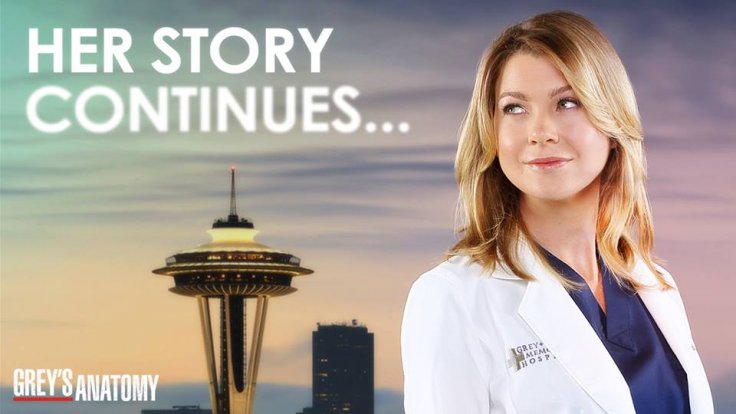There was a time, long ago in the history of Grey’s where Miranda Bailey incited fear in the hearts of those who knew her. She was the Nazi, the no-fucks-given, no-shit taken captain of the ship and we loved her for it. In the second episode of what looks set to be Grey’s Anatomy 2.0 we were reminded of where our fearless leader came from, and surprisingly to no one more than myself, it actually might have paid off.
Since her days of reigning terror upon the interns, Bailey has gone through a strange transformation wherein she’s become a better surgeon, a stronger mother, a much healthier spouse but has unfortunately lost much of her self-confidence and respect within the show. Much of her gravitas is still derived from our memories of her yelling at her underlings and laying down the law and not from anything she’s done since (probably) 2011. This week, we finally got to see her return to that no-fucks-given, no-shit-taken Führer we fell in love with. But after so many years away, it was just as hard for Bailey to get back in the swing of things as it was for us to watch.
Last week I complained about the show moving too hard, too fast; Trying to make me forget the bad and trust in the show all over again in under an hour (And seriously, ain’t no oven pre-heat that quickly). Which is why I thoroughly enjoyed Bailey reaping consequences from trying to attempt the exact same thing. If this was completely unintentional from the writers, then I apologise for giving them that much credit. Because the decision to have a staple character overstep, overreach and overcompensate in much the same way that the show is – AND THEN NAIL HER TO THE WALL FOR IT- really made me smile in a way that Grey’s hasn’t made me do in a while.
This all happened thanks to the B.U.G. (The Big Unfriendly Giant) whose tumour on her pituitary gland has caused her to grow exponentially, meaning that her spine might (but-almost-definitely will) snap. The B.U.G. is pissed because she’s bringing the internet to Africa or something and so can’t stay in the hospital for longer than 4 hours (which sounds like a process that might’ve necessitated an assistant showing up or something. I mean repeatedly saying “I’m needed, I have to go” doesn’t make you necessarily “needed” sweet rude giant lady, I got the feeling like they were probably doing ok without you). So Bailey thinks that weeks of hardwork can be crammed into 4 hours by our loyal docs. At best this seems ridiculous and at worst is just ridiculous… which, what do you know? just comes across as ridiculous either way.
Much in the same way as Jurassic Park, life does find a way and the job gets done but it’s not with Miranda’s help – it’s despite it. The Nazi might be on her way back, but it seems like faking it ’till you make it just isn’t going to cut it – She’s going to have to put in the time and earn the position she thinks she’s earned just from making it this far (*cough* Shonda Rhimes *cough* ).
Some fun on the side worth mentioning is the further introduction of new lambs for the slaughter: McCutey and McHottie interns. Grey’s is at it’s funniest when it commits to being a moshpit of #drahmaa and in earlier years hit home when we were leaked bits and pieces of stories that we never really saw, a.k.a. the interns of seasons 4 and 5. There’s moments of this kind of humour coming from this years batch of newbies, as we’re starting to see trickles of inside jokes and inside banter shine through. I don’t know anything about McCutey or McHottie other than McCutey is letting me vicariously creep on Jo and McHottie is well, just so darn fun to look at. But what’s great is, this episode at least really seemed to realise that with so much heavy #drahmaa coming from Bailey and ‘Japril’, all we really needed them to do is make us giggle. I’m sure their time will come (pretty sure McHottie is living with Arizona now but apparently it’s a cool roommate thing not to share a single scene together) but for now at least, if we can keep seeing McBanter fly without it having to be weighed down by me caring for more people that might die, then this might just work.
Finally, just some words on ‘Japril’ developments: April is a highly accomplished trauma surgeon being told by other well-regarded surgeons that she has a rash that could be dangerous and her immediate response is “No, I’m fine, please let me go so I can treat sick people”. She then complains to her hot hot husband about wanting to fight for their marriage after her immediate response to these problems last year was “No, I’m leaving because I want to leave”. All I’ve learned here is that April’s first instincts always suck and she is literally regret incarnate. This week she just suffered from dermatitis, but next week she could be suffering from divorce… and the cream for that is a hell of a lot more expensive.


Recent Comments